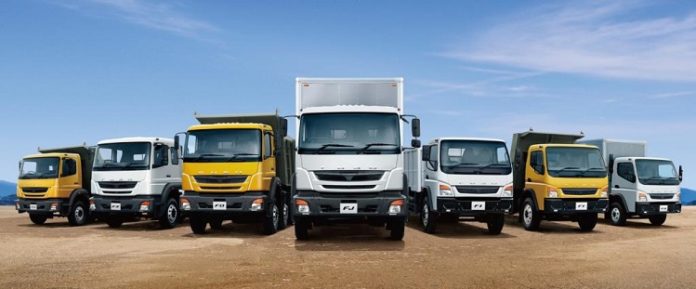Buying insurance is a significant investment, and you’ll want to invest wisely. Insurance doesn’t have to be a daunting task. There’s a good deal to consider, but remember, you don’t have to go through it alone. Your insurance provider can provide much more than a policy document.
First you need to be able to define what types of vehicles you are using and for what purpose. The most common types of commercial vehicles are defined as light commercial and include most types of vans as well as pickup trucks. Small, medium and large vans, as well as pickup trucks used for the purpose of transporting materials, goods and workers usually fall into this category. The vehicles you use and their purpose for your business will determine what coverage you need, so be sure you have that specific information before getting a quote. What’s the difference between commercial and personal vehicle coverage?
Coverage for your commercial vehicle is very similar to the insurance you need for your personal vehicle. However, there are a few added risks associated with commercial vehicles such as: added weight of loaded vehicle, size and nature of load, modifications of vehicle for commercial purposes, and ownership of contents i.e. property belonging to you or your customer. Added risks also include potential health and safety hazards to your employees and other workers. Commercial vehicle coverage is specially designed to cover these added risks so it is very important that you have it.
Factors to consider when buying commercial motor insurance
How do you find the business insurance that’s best suited to your operation? Here are some tips to consider before making your decision.
According to Sobhag Insurance Brokers, before considering buying insurance, you must look around for competitive premium rates with reliable insurance companies or use an insurance Broker who will be happy to advice and explain to you why insure with a certain insurer and provide you with competitive premiums and assistance when you have a claim.
Kevin Wamure, Principal Officer/CEO at Reica Insurance Brokers Ltd advises potential buyer to look out on the financial stability of the insurance company, company history and reputation as well as reviewing testimonials on service delivery, coverage and pricing.
“One should consider the excess amount; the amount you will need to cater for incase of repair after an accident. The excess is usually a percentage of the total value of the car or the minimum set amount, whichever is higher of the two. You can choose to opt of this by paying an excess protector, an additional benefit that can be added to your cover to avoid further misery after an accident,” says Allianz Insurance Company of Kenya Ltd.
“A potential buyer should also consider the passenger legal liability cover that comes separate from the motor commercial insurance. This cover protects you in instances where you may be liable in terms of the law for the injury or death of passengers that were transported in your vehicle. The cost is usually charged as per the vehicle’s capacity. If you have a 14 seater car, you will pay the set amount charged per seat multiplied by the number of seats you would like to insure, 14 being the maximum capacity,” she affirms.
At Africa Merchant Assurance Company Ltd, Martin Mwibanda, Head of Sales and Marketing, recommends comparing different quotations and services then choose what best fits the potential buyer’s needs such as customer service standards, company reputation, accessibility to the provider, financial stability, products offered suitability, location convenience i.e. branch network and claims payment.
What does commercial vehicle insurance cover
“Motor insurance provides cover for cars, trucks, motor cycles and all other types of vehicles. Specifically, motor commercial insurance covers where use of vehicle is for hire, reward and the carriage of goods in connection with insured’s business. It primarily provides protection against losses incurred as a result of road accidents, theft, fire and liability that could be incurred as a result of use of the vehicle,” says Kevin Wamure, Principal Officer/CEO at Reica Insurance Brokers Ltd
According to Allianz Insurance Company of Kenya Ltd commercial insurance cover vehicle used for transporting goods and paying passengers. The cover is usually categorized into four classes, the motor commercial own good, motor commercial general cartage, personal service vehicle and special type vehicles. Motor Commercial own good policy covers vehicles used to transport business owned goods e.g. pick-up trucks, double cabin and lorries. Motor Commercial General Cartage covers vehicles that can be hired or used for income purposes e.g. trailer-trucks and lorries for hire. Personal service vehicle (PSV) category insures vehicles used to transport passengers e.g. tour vehicles, matatus and taxis.
Moreover, Sobhag Insurance Brokers understands that, commercial insurance is a cover required by law on each and every commercial vehicle with a minimum requirement of Third Party Insurance and the top most cover being Comprehensive Insurance Cover. Third party cover protects you against damages payable to others for any damage caused by your vehicle to a person or property(i.e. pedestrian, vehicle, building, lamp post etc.).
“Comprehensive Insurance covers you for third party as well as damages incurred to your vehicle as well however it is subject to an excess of 5% minimum Ksh. 20,000. This is primarily there to avoid the insured in putting small petty claims as it does not justify the costs that the insurance company would incur in the claims process such as paying an assessor fee etc,” says Tina the Director at Sobhag Insurance Brokers.
Africa Merchant Assurance Company Ltd, interprets that commercial insurance cover any accidental loss or damage to the insured vehicle and its standard accessories, death or bodily injury to a third party, damage to third party property, medical expenses as per policy limit, legal costs related to any incident likely to give rise to a claim under the policy, authorised repair limit as per policy limit, towing limit as per policy limit.
The following are also covered at an additional premium;
- Windscreen and window glass (this is sometimes offered at no cost).
- Policy excess.
- Riot, strike & civil commotion.
- Coverage i.e. East Africa coverage.
- The goods if the goods are inclusive.
- AA tracking.
A motor insurance usually have three cover options. These are:-
Third Party only – This is the minimum cover required by the law in Kenya. It covers the insured against liabilities arising from bodily injury, death and third party property damage. This means that if your vehicle is involved in an accident, your insurer will only meet the third party injury claims and repair costs for the third party vehicle(s) (if you were to blame for the accident.
Third Party Fire & Theft – Provides cover for loss or damage to the vehicle caused by fire or theft, and legal liability for bodily injury, death and third party property damage.
Comprehensive – Cover against loss or damage to the vehicle and legal liability for bodily injury, death and third party property damage.The amount of cover is based on the current value of your vehicle. Extensions to this cover include cover for windscreen, radio cassette, medical expenses etc.
Motor commercial in terms of classification is categorized under general cartage, own goods and private hire.
What determines commercial vehicle insurance policy
The cost of insuring your vehicle is determined by its estimated market value. Age is another defining factor. A vehicle more than 12 yrs. old can only be issued a motor third party cover. It can’t qualify for motor comprehensive or motor third party, fire and theft.
A commercial vehicle is a motor vehicle constructed or adapted as a:
- Goods carrying vehicles i.e. Lorries
–this is further broken down to;
- Carriage of own goods excluding hire or reward.
- Carriage of own goods together with regular carriage for hire and reward.
- General haulage.
- Passenger carrying vehicles i.e. institution vehicles.
- Agricultural and forestry vehicles i.e. tractors.
- Vehicles of special constructions i.e. cranes.
Depending on the different uses detailed above, this is what will form the basis in determining under which category of commercial vehicle insurance a potential buyer’s insurance need will fall under.
After this classification is done, the rates will be subject to the following factors;
- The use of the vehicle(s).
- Goods carried – some goods are high risk i.e. LPG.
- The coverage i.e. Kenya only vs East African coverage.
- The value of the vehicle.
- Fleet rates.
- Claims experience.
- Weight of the vehicle.





